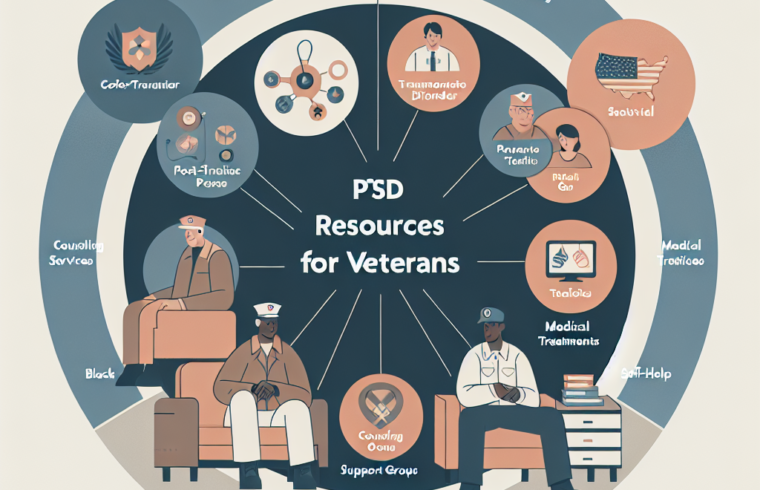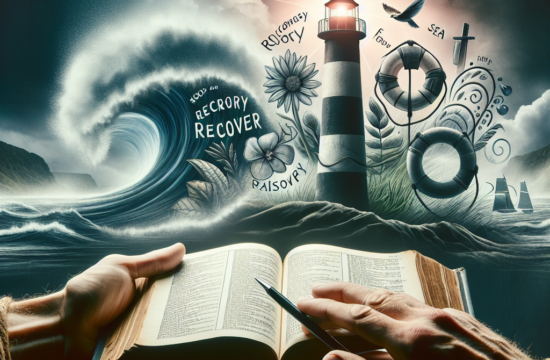==> Thank you for reading this post! Click Here If you are looking for support and Victory over PTSD.
What You Need to Know About PTSD Resources for Veterans
- Understanding PTSD and Its Impact on Veterans
- Available PTSD Treatment Options
- Support Networks for Veterans with PTSD
- How to Access PTSD Resources Effectively
Understanding PTSD and Its Impact on Veterans
What is PTSD?
As someone who has explored the ins and outs of PTSD, I can tell you it’s not just a term thrown around casually. Post-Traumatic Stress Disorder is a legitimate mental health condition. It affects folks who have been through traumatic experiences, and this includes many veterans. Sometimes, the aftermath of what they experienced during their service can linger far longer than we realize.
You see, PTSD can manifest in ways that aren’t always obvious. It might come as flashbacks, anxiety, or even stubborn anger. Understanding that PTSD is as real as any physical ailment is crucial. Many soldiers may feel like they should just ‘suck it up’ and move on, but believe me, that idea can lead to serious consequences.
By recognizing the signs early and addressing them, veterans can lead healthier, happier lives. It’s imperative to have those tough conversations and pull back the curtain on PTSD, so we can find the appropriate help that our veterans truly deserve.
The Symptoms and Their Effects
Talking about symptoms can sound a bit clinical, but let’s break it down. The symptoms of PTSD vary among individuals. Some might experience nightmares or intrusive thoughts, while others might deal with hypervigilance — that constant feeling that something’s about to go wrong. Trust me, living like that is exhausting.
The effects don’t just vanish overnight. They can bleed into every aspect of a person’s life, affecting relationships, work, and even day-to-day activities. The good news? There’s hope, and recognizing these symptoms is the first step toward healing.
Veterans should know that they are not alone in this fight. Many have walked this path, and there’s a whole community out here ready to support them. You might even learn from the experiences shared by others on this journey.
The Importance of Getting Help
You might wonder, “Why is it so essential to seek help?” That question often pops up in discussions about mental health. The truth is, talking it out with someone who gets it can be a game-changer. Whether it’s a doctor, therapist, or even a support group, having someone to listen can help process those tough emotions.
Often, veterans are hesitant to reach out due to stigma, but it’s time to break that cycle. The more we normalize seeking help, the better. There’s absolutely no shame in admitting that one needs support; it’s an act of courage. Reaching out is, in fact, a significant step towards recovery.
So, if you or someone you know is wrestling with PTSD, remember: help is out there. Don’t be afraid to take that leap. There are countless resources available, and they can make a world of difference.
Available PTSD Treatment Options
Therapeutic Approaches
Alright, let’s dive into some of the treatment options available. When it comes to dealing with PTSD, therapy is often the first line of defense. There are various types of therapy that have shown great promise. Cognitive Behavioral Therapy (CBT) is one of them, focusing on changing negative thought patterns. Therapy can be a safe space where veterans can explore their feelings without judgment. That freedom to express oneself is priceless.
Another option is Eye Movement Desensitization and Reprocessing (EMDR), which helps process traumatic memories. It might sound a bit weird, but it can be incredibly effective. Don’t knock it till you try it, right?
Finding the right therapist might take a few tries, and that’s totally okay. It’s all about finding someone you vibe with, someone who gets you, and works with your needs. This journey isn’t one-size-fits-all!
Medication as a Tool
Now, let’s chat about medication, which can play a key role for many veterans. Prescription medication isn’t the end-all, be-all treatment, but it certainly can help manage the symptoms of PTSD. Antidepressants, anti-anxiety medications, and even sleep aids can be part of the toolbox in fighting this battle.
However, it’s vital to approach medication carefully. Always consult with a healthcare provider who understands your unique situation. The goal is to find what helps you feel the most like yourself without unwanted side effects.
And remember, medication isn’t a standalone solution. Pairing it with therapy tends to yield the best results. Combining these two approaches can create a powerful synergy for recovery.
Alternative Healing Methods
Let’s not overlook those other unique methods out there. Many veterans have found comfort in alternative healing techniques such as yoga, meditation, and even art therapy. These practices not only help manage stress but also provide an avenue for self-expression. Gym or yoga classes tailored for veterans are cropping up everywhere!
Meditation can be a calming retreat from chaos, offering a moment of peace and clarity. Art therapy, on the other hand, can help articulate feelings that might be difficult to express verbally. It’s a fantastic way to become connected with emotions that may feel trapped inside.
Overall, there is no shortage of paths toward healing. Trying a mix of traditional therapies alongside alternative practices could lead to discovering what resonates best with you.
Support Networks for Veterans with PTSD
Peer Support Groups
This is huge — connecting with fellow veterans who get it. Peer support groups are pretty popular and can be an amazing space to share experiences. There’s something incredibly validating about speaking with someone who’s walked in your military boots and understands the struggles that come after.
These support groups can provide insights you might not find elsewhere. Stories shared help form bonds and create a sense of community. They often provide encouragement and can hold you accountable to keep moving forward.
Get Started with Recovery! Visit us for more Information and Support
You can find these groups locally or online. Not all conversations have to be heavy, either! Sometimes, cracking a joke about shared experiences can lighten the mood and form delightful friendships.
Family and Friends as Allies
Let’s not forget the role family and friends play in all of this. They can be powerful allies during the recovery journey. Communicating what you’re going through can foster understanding and connection. Your loved ones don’t need to have all the answers — just being there can mean everything.
It’s always beneficial to educate them about PTSD. When they understand what you’re facing, it helps them support you better. Plus, it opens up a pathway for more genuine and meaningful conversations.
No one has to battle this alone. The circle of support — be it family, friends, or fellow veterans — can lighten the load. Don’t hesitate to lean on those close to you; they often want to help more than you know.
Resource Organizations
There’s a growing number of organizations dedicated to supporting veterans with PTSD. The VA has countless resources available — you just have to dig a bit to find them. Organizations like the Wounded Warrior Project and the DAV (Disabled American Veterans) also offer programs specifically geared toward mental health support.
These organizations are not only there for support but also strive to educate people on PTSD. By participating in their programs, you can find a wealth of information and community connection.
Additionally, advocacy groups are constantly pushing for better mental health resources for veterans. Remaining informed about available support systems is crucial, so dive in and see what’s available in your area.
How to Access PTSD Resources Effectively
Navigating the System
Accessing PTSD resources can feel daunting at first, but I promise it doesn’t have to be complicated. Start with your local VA office; they are designed to help veterans like us navigate the plethora of resources available. They can provide guidance on finding the right therapist or treatment program for your specific needs.
Also, don’t hesitate to ask questions. If something doesn’t sit well with you, or if you feel lost in the paperwork, speak up! The system is there to support you, and you deserve clarity on your options. Simplifying the process can take a giant burden off your shoulders.
It’s all about utilizing the available services to maximize your health and healing journey. The more informed you are, the more effective you will be in accessing the resources you need.
Online Resources
Ah, the internet — it can be both a friend and a foe, but there are some fantastic online resources available too! Websites dedicated to veteran support can have valuable information at your fingertips — everything from educational materials to directory listings for local support groups.
Take your time browsing through these sites. Join forums or social media groups focused on PTSD awareness for veterans. This can provide emotional support, tips, and, most importantly, the knowledge that you’re not alone in this fight.
Just keep in mind to use trusted sites. The last thing you need is misinformation. Stick with reputable platforms that are recognized for their veteran support efforts.
Staying Engaged and Proactive
Another way to access resources effectively is to remain engaged and proactive in your recovery. Start by setting achievable goals, whether that’s reaching out for help or joining a local veteran group. Small steps lead to significant progress over time.
It’s also beneficial to maintain regular check-ins with your mental health professionals. This could be as simple as a monthly phone call or a regular appointment with a therapist. Having someone who regularly checks in can help keep you accountable on your path to healing.
Staying engaged doesn’t just help in recovery; it can also foster new friendships and create a stronger support network. If you put yourself out there, you’ll find more resources than you might think!
FAQs
What are the first signs of PTSD in veterans?
The first signs of PTSD can include flashbacks, nightmares, severe anxiety, and uncontrollable thoughts about the traumatic event. These symptoms can manifest differently for each individual, so understanding your own feelings and reactions is essential.
How effective are support groups for veterans?
Support groups can be highly effective for veterans. Sharing experiences with others who have faced similar challenges can provide powerful emotional relief and offer strategies for coping. Many veterans find a sense of community and belonging within these groups.
What types of therapies are most beneficial for treating PTSD?
Cognitive Behavioral Therapy (CBT) and Eye Movement Desensitization and Reprocessing (EMDR) are two therapeutic approaches that have shown to be effective for PTSD. Additionally, alternative therapies like art therapy and mindfulness practices can also complement traditional methods of treatment.
How can veterans locate PTSD resources in their community?
Veterans can locate PTSD resources by contacting their local VA office or searching online for veteran support organizations. Many communities also host veterans’ events where information on available resources can be gathered. Networking with fellow veterans can also lead you to useful local services.












